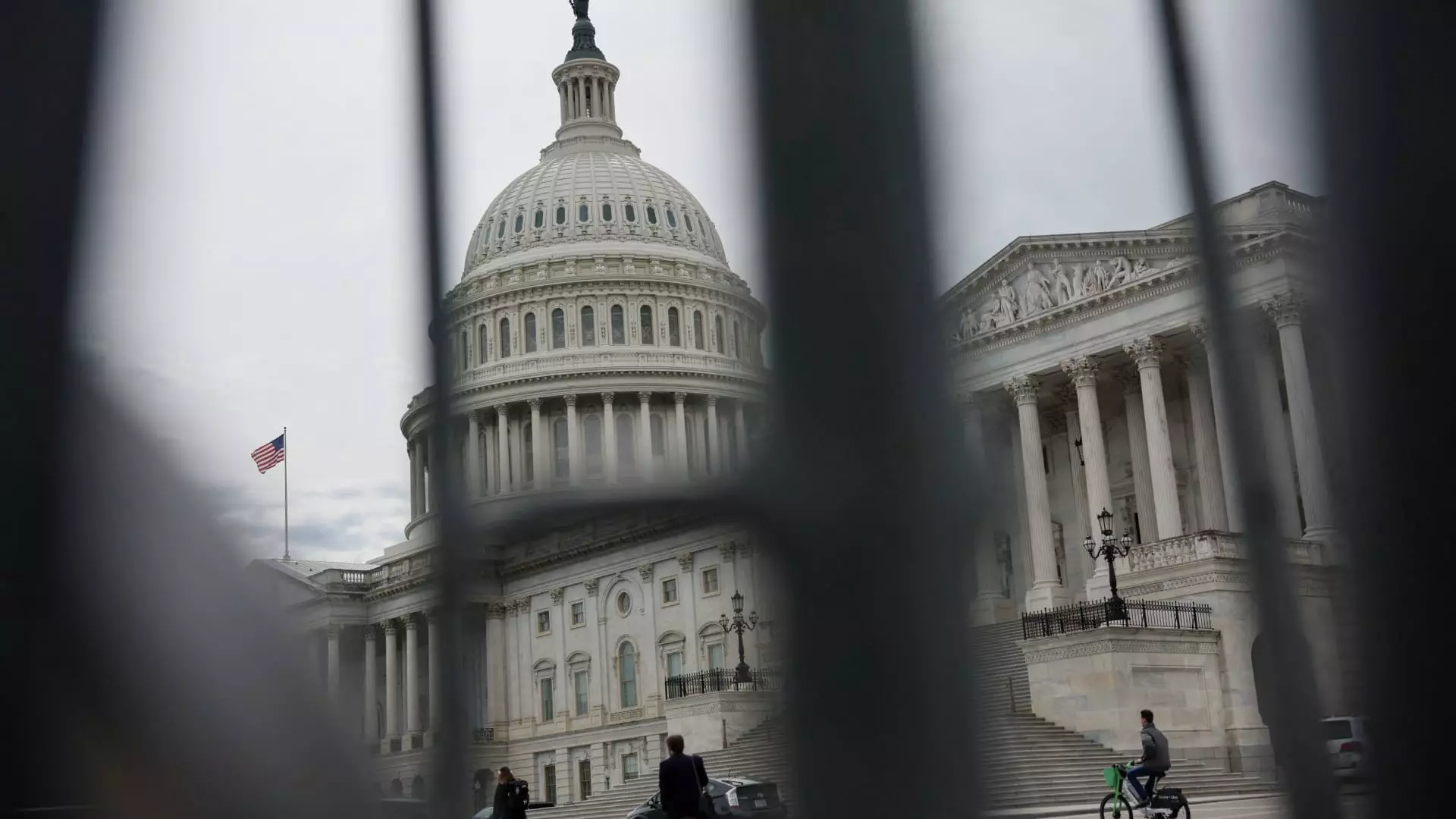As the U.S. Senate approved a daunting Republican budget blueprint in the early hours of Saturday, a cloud of skepticism looms over the promises tied to this measure. The intention behind extending President Donald Trump’s 2017 tax cuts while slashing government spending is packaged as a boon for taxpayers. Yet, a closer examination reveals a far more insidious scheme—one that threatens to deepen the national debt while stripping essential services from the very Americans it purports to support.
This freshly inked budget blueprint is projected to add a staggering $5.7 trillion to the federal debt over the next ten years. While Republicans argue that its cost is significantly lower—$1.5 trillion—this discrepancy hinges on a narrow and questionable interpretation of what constitutes “costs” in the context of tax policy. Their viewpoint conveniently ignores the repercussions of allowing previously granted tax breaks to lapse. Such fiscal sleight of hand should raise alarming red flags for citizens who will ultimately bear the burden of this reckless economic strategy.
A Legislative Strategy Designed for Evasion
This budget maneuver is emblematic of the Republican Party’s strategic abdication of responsibility. By leveraging this budget blueprint to evade the Senate’s filibuster, Republicans aim to pass tax cuts without having to negotiate bipartisan support. The ramifications of this tactic extend beyond the surface level; it outlines a chilling path toward governance that sidelines thoughtful deliberation in favor of political expedience.
As the clock ticks down toward a looming summer deadline to raise the federal debt ceiling by $5 trillion—an essential move to avert defaulting on an already mind-boggling $36.6 trillion in debt—Republicans are notoriously focused on tax cuts for the wealthy rather than addressing the profound fiscal instability that could be precipitated by their actions. Such priorities exemplify a disturbing dismissal of accountability toward the American populace.
The Flimsy Arguments for Tax Cuts
Senate Republican Budget Committee Chairman Lindsey Graham’s warning about the “catastrophic” impact of allowing the 2017 tax cuts to expire showcases a concerted messaging effort intended to stir fear. Graham claims that a typical American family could face a $1,695 tax increase. Yet, the underlying data are often distorted, leading to exaggerated implications about the necessity of extending tax breaks for the wealthy at the expense of average citizens.
Opposing this narrative is Senate Democratic Leader Chuck Schumer, who posited that these tax cuts mainly serve to enrich the ultra-wealthy—an assertion that many Americans instinctively recognize as more relatable than Graham’s doomsday scenario. When the motivation behind fiscal policy appears to cater primarily to those atop the economic ladder, it is reasonable for the general public to question who truly benefits from such measures.
Deep Cuts to Essential Programs: A Step Too Far
As if thrusting the average citizen into an existential financial crisis isn’t concerning enough, the proposed cuts disproportionately target programs critical to low-income Americans. Medicaid faces proposed reductions amounting to $880 billion, a move vehemently criticized by health advocates and political leaders alike. Independent Senator Bernie Sanders forewarned that such cuts could exacerbate suffering, particularly among vulnerable populations, including children who rely on the healthcare program for necessary services.
Despite Republican assurances that Medicaid would remain intact due to “efficiency”-focused reforms, skepticism abounds. The ambiguity surrounding these proposed reforms raises critical questions about their feasibility and the potential fallout on millions of lives dependent on the program. When ideological reasons overshadow the practical needs of everyday citizens, trust in these leaders swiftly erodes.
The Unfortunate Loyalty to a Faulty Puzzle
Amid deepening debates tinged with bitterness and obstructionism, the fiscal future of the nation hangs in the balance. Discrepancies in Party perspectives—seen when Senator Rand Paul openly questioned the juxtaposition of budget cuts against expanding debt—underscore a concerning state of intra-party disarray. The reality is that while politicians manufacture a narrative of savings, the practical implications could anticipate a $2 trillion increase in debt via forthcoming legislation.
As we look toward a future fraught with financial uncertainty, the consequences of this Republican budget blueprint may very well alter the socio-economic fabric of the nation. Instead of embracing rigorously crafted solutions that uplift all segments of society, lawmakers seem determined to execute a path defined by division, where the affluent continue to thrive at the expense of the vulnerable. The impending fallout from these decisions may not only foster an enduring climate of animosity but compromise the foundational promise of opportunity for which this country was built.


Leave a Reply